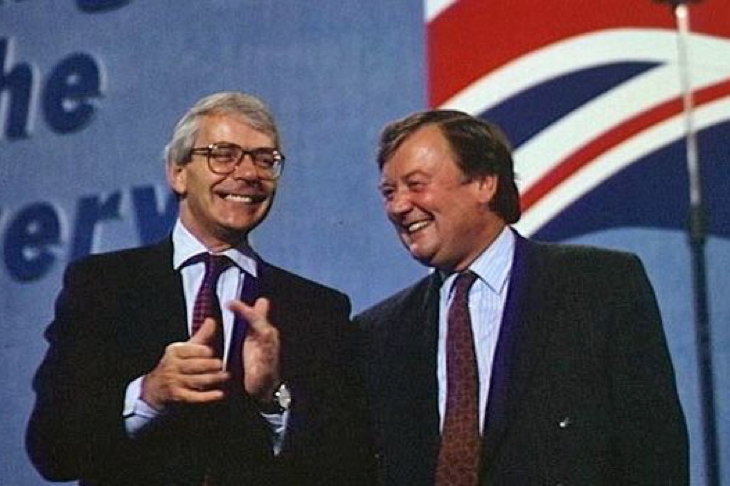Older readers might remember the night in April 1992 when, unexpectedly, a tyranny of the majority returned John Major’s Conservative government to power. That same night a local bunch of tyrants in Huntingdon sent Major back to Westminster with a majority of over 30,000, while a tyrannical mob up in Nottingham did the same for Ken Clarke – who was to become Home Secretary and later Chancellor.
Funny enough, though, I don’t recall either John Major or Ken Clarke using the word ‘tyranny’ at the time – or anything approaching it. On the contrary, I vaguely remember them making remarks as to the effect that the good old British people had made a sensible decision in rejecting windbag Kinnock.
Yet for some reason, both men now prefer to use the term ‘tyranny of the majority’ to refer to what most of us – a tyrannical majority, even – would generally call ‘democracy’. Their change of heart would appear not unrelated to the decision of that same good old British public voting last June to leave the European Union.
According to Clarke on this morning’s Today programme, using the result of the referendum to decide whether we actually leave the EU ‘is not exactly mob rule, but it is the tyranny of the majority being used to silence people’s opinions’. John Major used the same phrase last November when he said: ‘I hear the argument that the 48 percent of people who voted to stay should have no say in what happens. I find that very difficult to accept. The tyranny of the majority has never applied in a democracy and it should not apply in this particular democracy.’
What a meaningless statement. Surely the whole basis of democracy is that the majority gets it way. The idea that decisions should go against the majority because the minority is jolly cross about the result, and thinks the majority made a mistake, seems to me a rather less robust basis for running a political system. Now that the Supreme Court has ruled that Parliament must give approval for the government’s exercise of Article 50, MPs and Lords have an opportunity to over-rule the majority. If they do, however, they can expect to pay a very heavy price.
If the government were to lose a vote on Article 50 and call a general election as a result, polls show a very strong lead for the Conservatives – 17 per cent ahead of Labour on 42 per cent. Add the Conservative and Ukip poll figures together and you get to 55 per cent – higher than the 52 per cent who voted for Brexit last June. That doesn’t suggest a swell of support for MPs who would like to frustrate Brexit. John Major, by the way, received 41.9 per cent of the popular vote in 1992. He wasn’t even a tyranny of the majority. He was a tyranny of the minority.







Comments